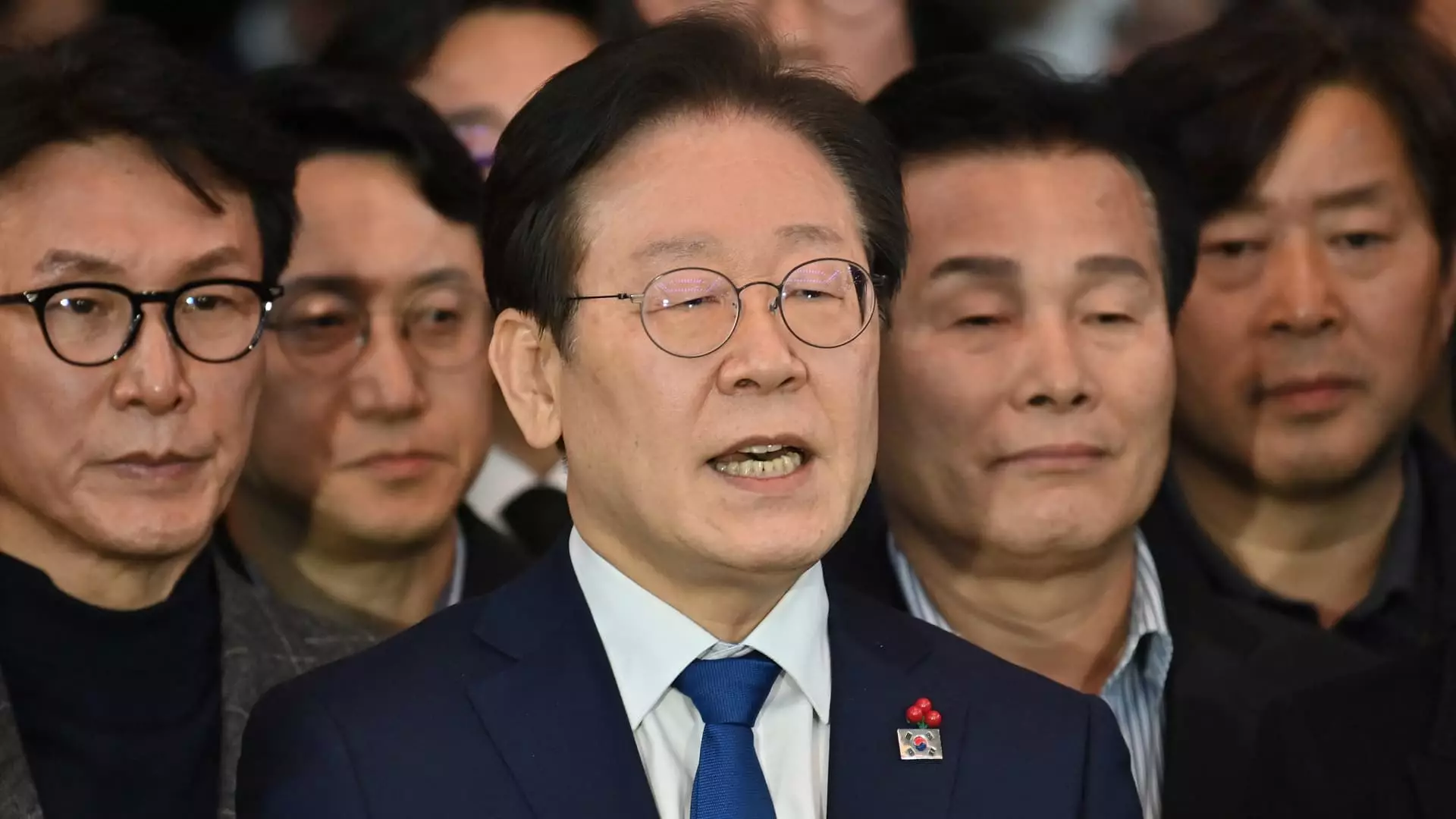As South Korea stands on the precipice of significant political transformation, the stakes have never been higher. In the wake of the recent impeachment of President Yoon Suk Yeol, the nation finds itself in a precarious position, grappling with pressing economic challenges and complicated diplomatic relationships—particularly with the United States. Lee Jae-myung, the frontrunner for the presidency, has taken a bold stance, urging a reevaluation of the timelines regarding U.S. trade tariffs. His assertions could reshape not just the upcoming election, but also the course for economic diplomacy.
Lee’s perspective is particularly striking when juxtaposed against the backdrop of escalating global tensions and economic uncertainties. With the June 3 election looming, the urgency to establish a more benevolent and mutually beneficial agreement with the U.S. remains paramount. Trade tariffs, set under the previous administration, threaten to unravel the strong economic ties that have long existed between these two allied nations. Instead of merely adhering to the hard deadlines dictated by one side, Lee’s call for diplomatic service imbued with a spirit of collaboration emphasizes a more sophisticated approach: a reshaping of the negotiation landscape where mutual respect prevails.
Trade Diplomacy: A Tug-of-War Between Power and Compromise
The world of trade negotiations can often resemble a game of chess, fraught with positions and counters. Lee Jae-myung’s characterizations of current tariff diplomacy as “plunder” underscore a profound concern for the potential erosion of economic sovereignty. Rather than succumbing to an adversarial framework where one nation must win at the expense of another, the Democratic Party of Korea’s agenda should aim for a cooperative paradigm. This diplomacy isn’t merely transactional, but rather an evolution towards a framework where both parties can find common ground without sacrificing their national interests.
The urgency underscored in Lee’s remarks serves not only to illuminate the disquiet at home but also to challenge the rigid structures that often define international relations. “Isn’t diplomacy something that benefits both sides?” he questions, exposing the fallacy in a system that prioritizes unilateral gain over collaborative problem-solving. This is the essence of Lee’s platform—a call for a more enlightened approach to diplomacy that acknowledges shared vulnerabilities and collective strengths.
Rethinking National Defense and Economic Interplay
In a climate where global threats loom large, Lee’s commitment to maintaining a robust defense posture while pursuing dialogue marks a pragmatic balance that transcends traditional hawkish rhetoric. While it is imperative to bolster the South Korea-U.S. alliance, his proposal for peace on the Korean peninsula reflects a willingness to step outside of polarizing norms. The harsh policies from the previous administration not only strained inter-Korean relations but also introduced significant economic uncertainties that could deter foreign investment.
By advocating for increased respect and communication, Lee underscores the notion that economic stability and security cannot be compartmentalized. They are intertwined, as a cooperative diplomatic stance may usher in new economic opportunities, improve investor confidence, and ultimately foster peace. The delicate dance of diplomacy involves not just a demonstration of military might but also an ability to envision a future where obstacles can be overcome through engagement and understanding.
The Election: A Crucible of Ideals and Realpolitik
The opinion polls point toward Lee’s gradual yet determined lead against conservative rival Kim Moon-soo. The electoral battleground has morphed into something that is far more than a simple popularity contest; it represents a critical juncture where the electorate must grapple with historical discontent and future possibilities. Lee’s criticisms of his opponent’s past association with contentious legislative measures amplify the distinctions between contrasting approaches to policy and governance. His appeal lies not only in his promises but in the essence of his message—a clarion call for an economic system built on earned trust rather than fear-driven tactics.
As South Koreans prepare to cast their votes, Lee’s vision resonates with many who seek a pragmatic and forward-thinking approach. The potential for a new diplomatic lens to refract the complexities of international trade and security dilemmas not only galvanizes his campaign but also ignites a larger discourse about the future trajectory of South Korean society as it faces its most formidable challenges yet.

Leave a Reply